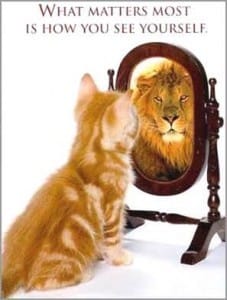
Researchers say that medical knowledge or health-related information available to us doubles every seven years. Isn’t that fascinating? That, for example, we will have twice as much knowledge about health this year as we did seven years ago?
Accordingly, in recent years, the latest secrets about how our bodies work, or how they affect our health, have been rapidly revealed.
Scientists are just one step away from a major discovery that could revolutionise not only health, but the pursuit of happiness and inner contentment in general. (Actually, the idea is not exactly new; it has been around for millennia among seekers of spiritual truths.)
We are talking about the real, root cause of all disease.
Until now, the word stress has been used. In the sense that most illnesses are psychosomatic in origin, stress is the main culprit. Usually, a figure of between 80% and 95% is talked about; however, different sources give different figures.
An ancient mystery about the origins of disease
Ancient sages have always warned that fear is the root of all problems. And stress is just another name for fear. In short, when we experience fear, we are stressed. Of course, we are not just talking about a real critical situation, in which fear is justified and even welcome, because it establishes a specific bodily state that makes it easier for us to defend ourselves or to resolve the situation. (Example: we are standing at a pedestrian crossing and a lorry is speeding towards us.)
Fear, which is a key contributor to health problems, also includes a state of inner distress that does not reflect the current (crisis) situation in the physical environment, but is merely imagined in the mind. For example, when we do not know how we are going to pay our bills. At that time, we are not in actual physical danger, but we still experience intense fear, which, in more learned terms, is called stress.
When we fully accept life’s circumstances and trust the unfolding of events, we do not experience feelings of distress or fear. Then we are not stressed.
Health problems can be caused by disharmony in any area of life

We have written a lot about how health conditions can be caused by disharmony or stress (i.e. fear) in any area. For example, it can be caused by problematic partner relationships, by a critical financial situation, by tensions at work, by difficulties in bringing up children… In short, wherever the situation is experienced as important.
But how does the process unfold whereby a disorder in an area that has seemingly no connection with health is transferred to the deterioration of the body’s organs?
Through perceiving and interpreting how events in our lives are unfolding – or even just thinking about an uncertain future or an unhappy past – we feel discomfort within ourselves. Each significant thought and the accompanying strong emotion creates a specific energetic state and chemical reaction within us, which is perceived by every cell in the body.
As a result, our cells can grow and renew themselves (when we experience our surroundings or thoughts as favourable and benevolent), or they can literally shut down and stop growing and developing. The latter happens when we experience, relive or even just imagine an unfriendly situation or distress.
Dr Bruce Lipton says that we can think of cells as miniature people living in a coherent community, carrying out daily tasks. They know how to look after themselves, all the while listening and following the leader – the mind. So each cell has its own intelligence, but the “higher instance” or the instructions of the mind always prevail, which, as we say, are a direct consequence of our experience of the world.
Lipton says that when the leader (the mind) does not announce a crisis, cells function like people in normal circumstances: going to work, looking after the family, tending the gardens… But when the “ruler” sounds the alarm, people shut themselves in shelters and wait for the “army” to take care of the crisis and for the crisis to pass. In the meantime, they are not generating income, they are not cultivating their gardens…, so things stand still.
When this goes on for too long or too often, collapse follows.
The key lies not in the circumstances but in our perception of the situation

So it is not so much what is actually happening around us that matters, as how we experience or interpret the situation. We can be lying on the most beautiful sandy beach, cocktail in hand, and warm in the sun, but if we are anxious, our bodily processes will be disturbed. Worry and distress will create a much stronger emotion than, on the other hand, the pleasure of lying on the beach, so the body’s intelligence will respond to this unpleasant emotion. (It always responds to the strongest signal.)
What’s more, the more scared we are, the worse our bodily processes will function… whether the trigger is real, or whether we are in the middle of a crisis or just thinking about it. The body’s intelligence does not have the eyes to see what is behind the scenes, or to what extent our fear is justified.
Therefore, it cannot switch off the stress mechanism or interrupt the chemical reaction process and consequently stop the processes in the cells when it realises that fear is not a reflection of the current state, but merely a reflection of thinking. (For example, when I realise that there is not a wild beast in front of us, gunning for our lives… someone with a loaded gun… we are not standing on a precipice, trying to balance… there is not a huge rock or avalanche, etc.) And I would say to myself, “Ah, nothing dangerous is happening, he is just thinking about the family budget again… I will inform the cells that it was a false alarm and not to be distracted.”
No, physical intelligence operates solely on the basis of our perception of our emotional state. When it senses that we are frightened, it considers that we are in great physical danger, so it adjusts our bodily processes accordingly: our mind focuses… our gaze is sharply focused on one point and the rest of the surroundings are “blurred”… the amount of selected hormones increases dramatically, raising our energy levels and preparing us for great physical exertion (fight or flight)… our limbs receive large amounts of blood to prepare them for action, and so on.
As the body does not have unlimited capacity to keep its internal processes running smoothly, it temporarily switches off the biggest consumers and sends the energy they were using to the tissues and organs that will be most active in the event of extreme physical exertion.
The body’s defence systems, including the immune system, are also big consumers. So when we are in fear, the intensity of the immune system’s activity drops drastically.
The most important question when it comes to health?

The most logical question that follows, then, is: what causes our greatest fears … and consequently steals our health?
If you are statistically among the majority of the population, it is financial problems. (By the way, finances are also said to be the biggest reason for marriage breakdown or divorce.)
When we get down to money and think of all the possible challenges and memories related to it, the first thing we will realise is that we have opened Pandora’s box. Money is not only the ability to maintain our current lifestyle (read: paying the bills … leasing a car … paying the instalments for a property or rent and other expenses), but it is directly linked to our power. Or, rather, to our perception of power.
Shall we check? Ask yourself how you feel about your current financial situation. Most people describe how they feel at the moment as somewhere between apathy, stress, distress, anger, helplessness …
Now try to imagine that you unexpectedly receive a very large amount of money; so large that it solves all your financial problems and you don’t have to go to work for the rest of your life.
Doesn’t it make you feel better … just thinking about it? Money has so much power over us.
Most of the time, we also associate money with our own identity, or a genuine expression of who we really are. When we see ourselves as highly successful and financially independent individuals who hold the ends of our lives in our hands and do not have to be subordinate to those around us in order to survive from one month to the next, we are imbued with an overwhelming sense of charisma, of importance (in the sense that we form a key link in society and add great value to those around us) and of liberation. We feel secure, provided for and almost invincible.
Thomas Keller said this in his workshop “Love and Partnership”: “Ask yourself to what extent money controls your actions. Have you noticed how money affects your self-esteem, your behaviour and even your sexuality? It is interesting to watch people when they receive a lot of money. They say to themselves: ‘Yesterday nobody liked me. I didn’t feel okay. But today I won the lottery. I feel good, my inner attitude is much more positive and optimistic, I look much better … I am actually wonderful! I can go to bed with anyone I choose!´”
This means that we directly link the ability to act to money.
Moving from the victim role to a higher level

Most of the time, we act passively, or when we are provoked (read: when it is necessary). It is as if we are saving our power… (We say we are living in the first stage of development, where we feel more like a victim or a prisoner of the current circumstances than a master of our own life.)
But we can also act from an intrinsic motivation, or proactively, from a state of personal strength. Then we rise to a higher, second stage of development.
In practice, this is demonstrated by finding an idea or project that you strongly believe in and putting it into practice. Identifying a gift or skill or talent to express oneself. Even if it means stepping on someone’s toes.
In short, we no longer wait for someone to take care of us – most often by “noticing our good heart, so he will return the kindness in a way that offers us what we want” – but by taking life into our own hands through our own creativity. As a result, our self-confidence increases or we build a better self-image.
In fact, everything changes when you move to the second …
When we gather our energy and put it into action, other things become less important and we pay much less attention to them than before. We no longer have the time and energy to “fund” everything and everyone who is looking for a shoulder to cry on … a fellow-sufferer to see what a victim he is and how unkind the environment is to him (and he is so good and always ready to help anyone) … a fellow-sufferer in search of excuses and justifications and so on.
Once we are anchored in the second stage of development, the world around us seems to have changed miraculously: people start appreciating us more, people suddenly turn to us for advice, we are doing more and more things well, we are much less bothered by our surroundings or by other people’s behaviour, and so on.
Small problems are no longer noticed, or even seen as an opportunity. We are thinking more and more about achieving bigger goals, so we are more determined, focused and dynamic. We are attracted to other people, life priorities change, we value our time more…
Well, on closer inspection, in reality, the surroundings haven ‘t changed so much as we ourselves have. (Or rather, others have merely reacted to our new image.)
How to awaken your power and the winner in you
One of the easiest ways to get to this stage is to improve our financial situation. As long as we are in a big deficit – and we don’t even know how we are going to manage next month, let alone in advance – it will be hard to find the confidence to feel comfortable in our own skin.
When we get our personal finances at least partially in order, our energy levels automatically increase. We feel stronger and more at ease, we can express our opinions more easily (read: we are braver in defending our views), we are more relaxed, we hide our true feelings less or allow ourselves to be who we really feel, etc.
There are, of course, tried and tested recipes or ways to do it (and not to do it). More on these in the next article.
Hint: it doesn’t start with saving money or finding a second/additional job, it starts in your head …
Based on the books written by Boris Vene and Nikola Grubiša.
